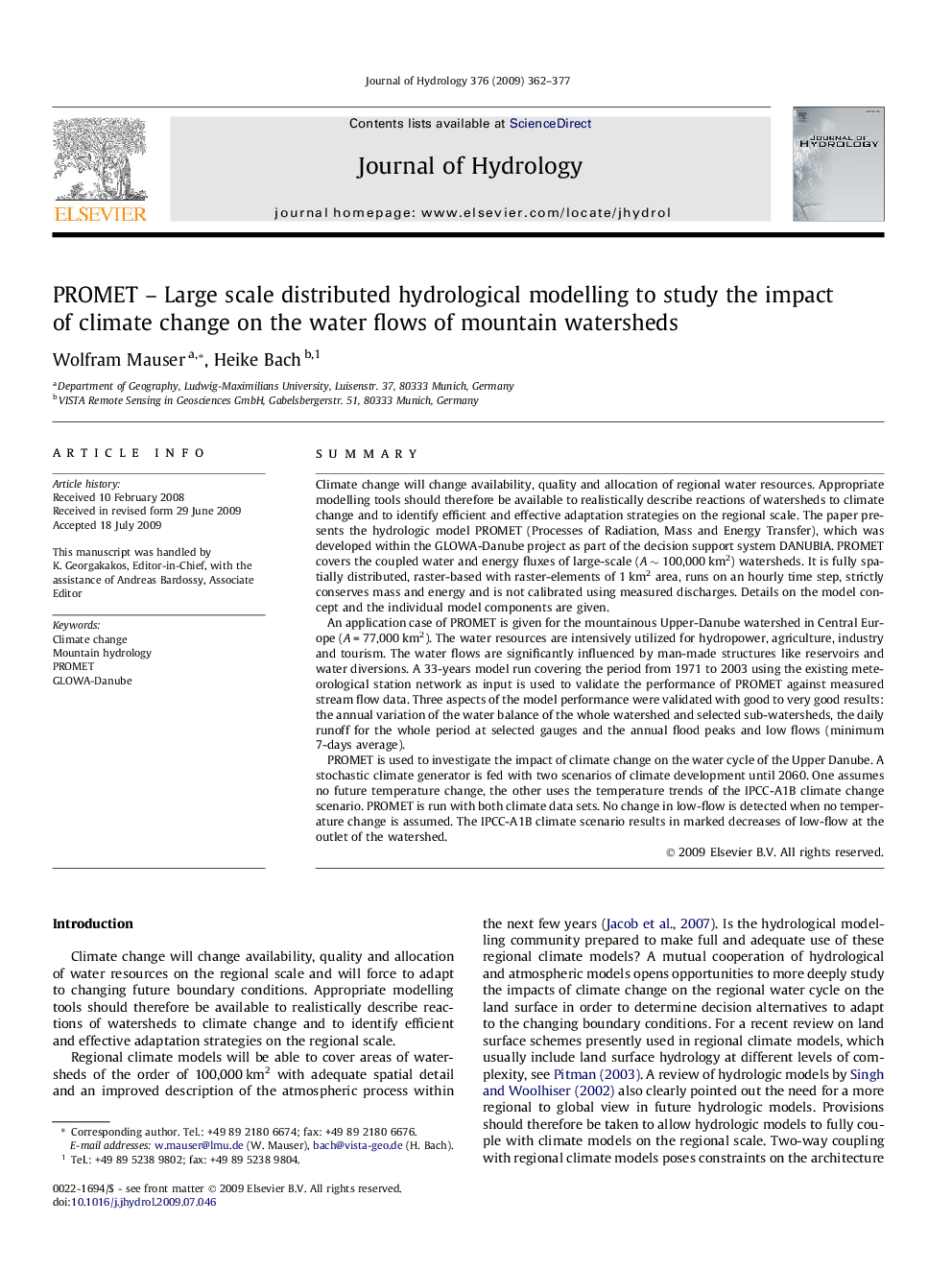| کد مقاله | کد نشریه | سال انتشار | مقاله انگلیسی | نسخه تمام متن |
|---|---|---|---|---|
| 4578604 | 1630072 | 2009 | 16 صفحه PDF | دانلود رایگان |

SummaryClimate change will change availability, quality and allocation of regional water resources. Appropriate modelling tools should therefore be available to realistically describe reactions of watersheds to climate change and to identify efficient and effective adaptation strategies on the regional scale. The paper presents the hydrologic model PROMET (Processes of Radiation, Mass and Energy Transfer), which was developed within the GLOWA-Danube project as part of the decision support system DANUBIA. PROMET covers the coupled water and energy fluxes of large-scale (A ∼ 100,000 km2) watersheds. It is fully spatially distributed, raster-based with raster-elements of 1 km2 area, runs on an hourly time step, strictly conserves mass and energy and is not calibrated using measured discharges. Details on the model concept and the individual model components are given.An application case of PROMET is given for the mountainous Upper-Danube watershed in Central Europe (A = 77,000 km2). The water resources are intensively utilized for hydropower, agriculture, industry and tourism. The water flows are significantly influenced by man-made structures like reservoirs and water diversions. A 33-years model run covering the period from 1971 to 2003 using the existing meteorological station network as input is used to validate the performance of PROMET against measured stream flow data. Three aspects of the model performance were validated with good to very good results: the annual variation of the water balance of the whole watershed and selected sub-watersheds, the daily runoff for the whole period at selected gauges and the annual flood peaks and low flows (minimum 7-days average).PROMET is used to investigate the impact of climate change on the water cycle of the Upper Danube. A stochastic climate generator is fed with two scenarios of climate development until 2060. One assumes no future temperature change, the other uses the temperature trends of the IPCC-A1B climate change scenario. PROMET is run with both climate data sets. No change in low-flow is detected when no temperature change is assumed. The IPCC-A1B climate scenario results in marked decreases of low-flow at the outlet of the watershed.
Journal: Journal of Hydrology - Volume 376, Issues 3–4, 15 October 2009, Pages 362–377